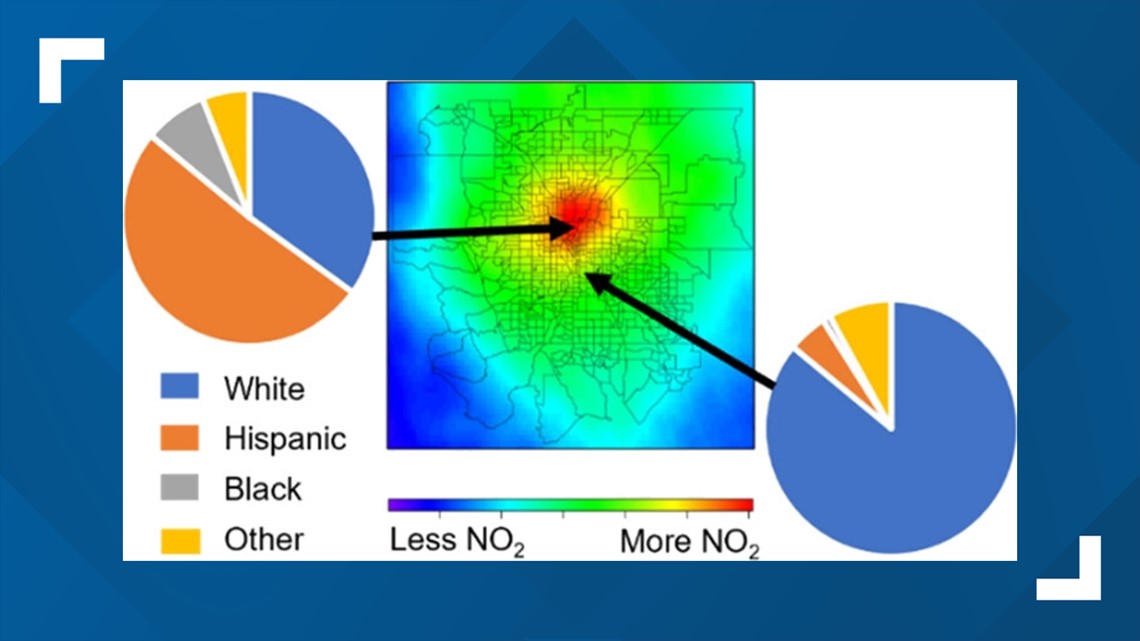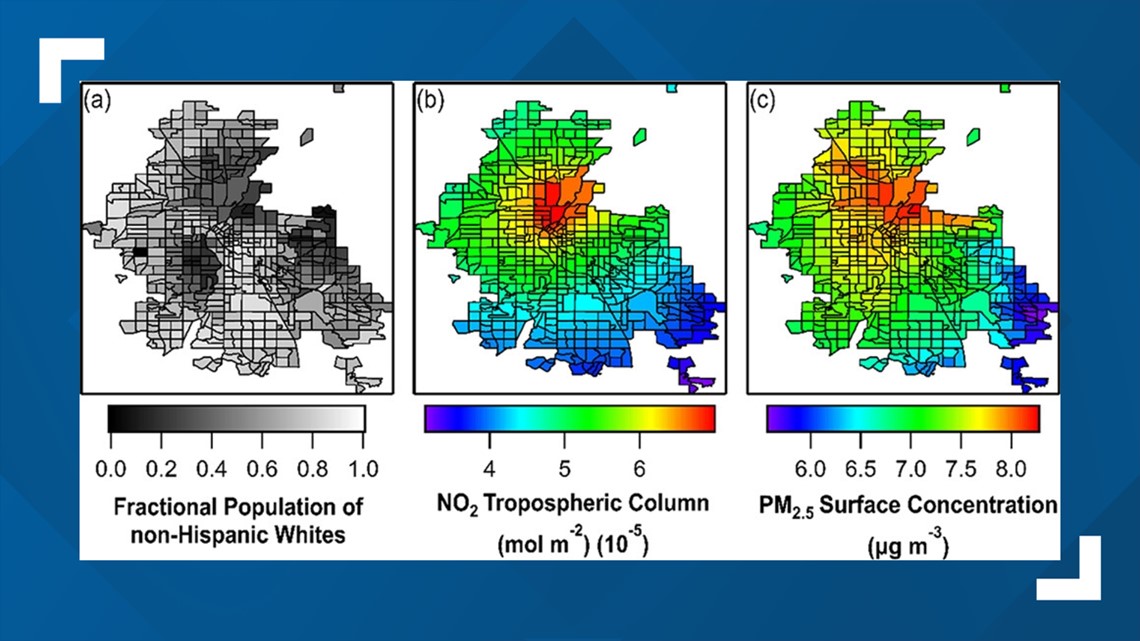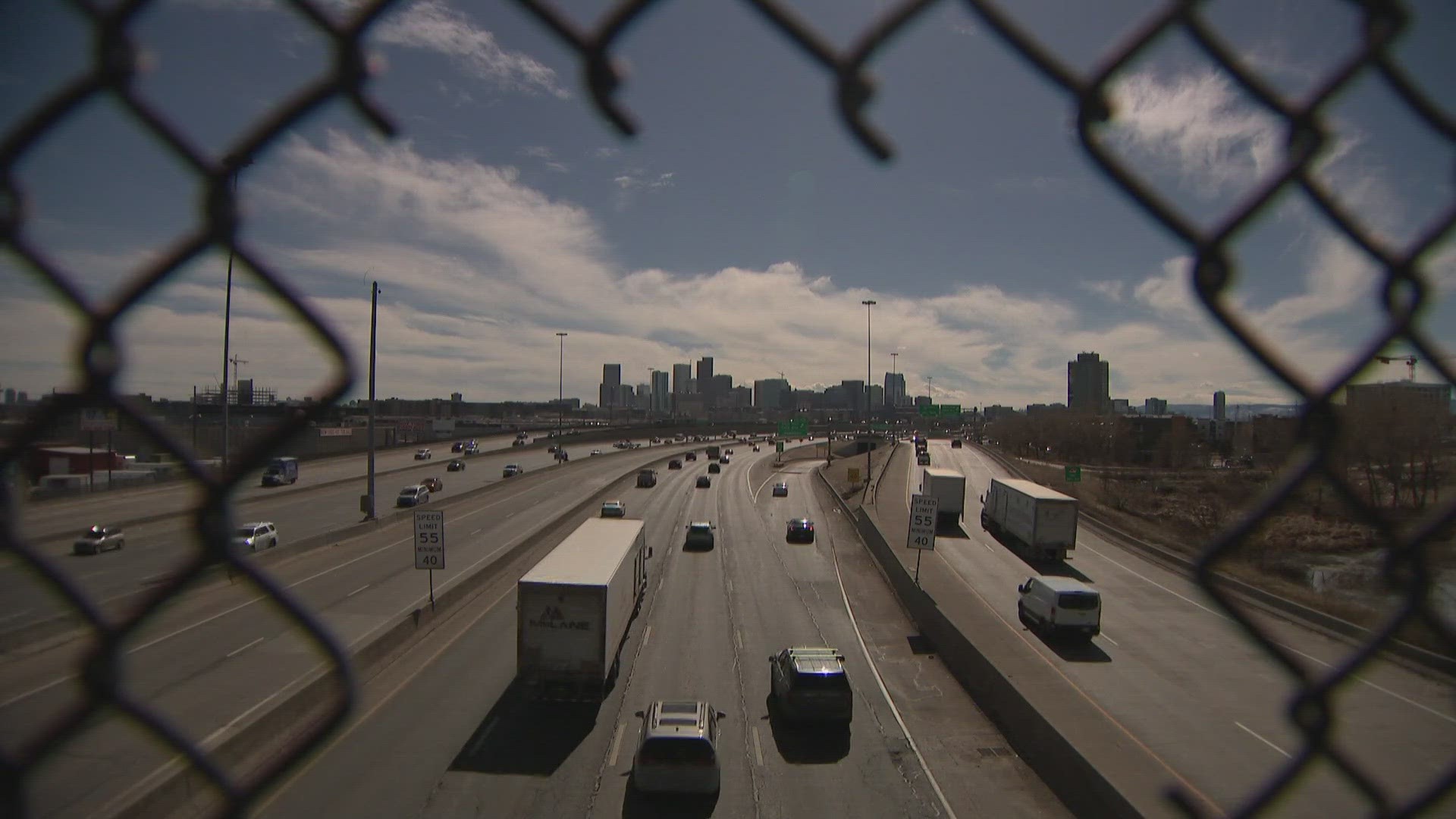DENVER — Atmospheric chemists at the University of Colorado-Boulder published a study Wednesday on racial disparities in Denver air quality.
Graduate student Alex Bradley is one of the authors on the study, having spent more than two years on research. He said based on his findings, he determined pollution is not distributed equally amongst racial and ethnic groups in Denver.
He said the evidence points to a deeper, darker side of American history.
"To me, this is a big example of systemic racism because people don’t choose necessarily where they live, a lot of that is due to economic and political factors, but where they live, definitely determines how much air pollution they experience and the negative health effects that come with that," Bradley shared.
He said the systemic racism felt in air quality inequities is a byproduct of a racist history of infrastructure decisions.
"Where people tend to live is dictated by historically racist practices like neighborhoods, racial covenants and redlining," Bradley said. "Here in Denver, the communities we see most affected are the Hispanic/Latino and Native American/American Indian communities."
The study determined the neighborhoods most affected by air pollution are in northern Denver County. Bradley's report pointed to the Globeville, Elyria-Swansea, Chaffee Park and Argo neighborhoods.


"The two main factors that we looked at were highways, but we looked at cars and trucks on the highways separately and the other fact we looked at was point sources so these are industrial sources, think like a Suncor refinery so there are smoke stacks there that are emitting things," Bradley explained.
Living in poor air quality is not lost on the communities most affected by it. Back in 2017, the Globeville, Elyria and Swansea neighborhoods filed a lawsuit against the Colorado Department of Transportation, claiming negative health effects from construction on I-70.
The lawsuit resulted in a settlement by CDOT, agreeing to fund community outreach, landscaping and health surveys. Now through Feb. 2025, the communities are working with health professionals to answer questions like, "What are the cumulative impacts of environmental exposures?"
Health study project manager Marshall Thomas told 9NEWS all factors are being considered in its studies, including air, soil and water.
"As part of this study, we looked at 200 other cities that experienced redlining throughout the US and we found a huge range of differences and this is Denver-specific and that’s important to note because every city is going to have it’s own developmental story and why people live where they do so this sort of study that we completed here in Denver could be done for every other city in the US and they would get slightly different results or significantly different results," Bradley said.


SUGGESTED VIDEOS: Colorado Climate

